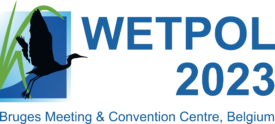WETPOL scope and topics
WETPOL scope
WETPOL (Wetland Pollutant Dynamics and Control) is a biannual international conference bringing together wetland scientists, engineers and practitioners working on wetland ecosystem services, including water quality improvement, climate regulation, and flood control. WETPOL was initiated in 2005 in Ghent (Belgium), and has since then seen succesful follow-up conference in Tartu (Estonia, 2007), Barcelona (Spain, 2009), Prague (Czech Republic, 2011), Nantes (France, 2013), York (UK, 2015), Big Sky (Montana, USA, 2017), Aarhus (Denmark, 2019) and Vienna (Austria, 2021). For this 10th anniversary edition, WETPOL will be organized again in Belgium, in the beautiful city of Bruges.
The conference will create a framework for wetland scientists and practitioners to exchange knowledge and advance the overall understanding of these complex ecosystems. The goal is to improve our understanding of the role wetlands perform in processing nutrients and contaminants, and to discuss and demonstrate how restored and constructed wetlands in the future, via their associated ecosystem services, can contribute to ensure sustainable water management and resource recovery while at the same time regulating and mitigating impacts of global climate change.
Typical conference topics
- Biogeochemical cycling of carbon and nutrients
- Carbon sequestration and greenhouse gas emissions
- The role of wetlands in pollutant management at the catchment scale
- Increase process understanding for TW types, e.g. Evaporative willow systems, Sludge treatment wetlands, Intensified wetlands, Microbial electrochemical wetlands resources recovery from wetlands
- Wetland plants ecophysiology and invasiveness
- Impact of climate change on wetland systems
- Attenuation of diffuse pollution in wetlands
- Behaviour of priority and emerging pollutants
- Molecular and microbial advances related to pollutant fate, disposal and removal in wetlands
- Role and functioning of wetlands and other nature-based solutions in urban settings
- Advances in modelling for process understanding and design
